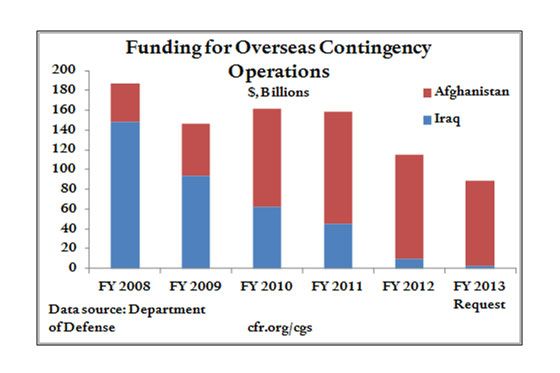
A couple of weeks ago, Joe Scarborough invited Paul Krugman onto his MSNBC show. The meeting of the brilliant but prickly Krugman with the dopey but genial Scarborough held the promise of a cataclysmic matter-touches-antimatter collision of an unpredictable and frightening scale. Instead, they passed right through each other. Krugman has been arguing for years that the political elite has been in the grips of a dangerous fallacy that immediate budget austerity is necessary and even helpful to economic growth, a fallacy, he points out, that has powerful adherents but flies in the face of actual economics. Scarborough attempted to discredit Krugman by pointing out that such figures as Admiral Michael Mullen, Council of Foreign Relations President Richard Haas, and former Clinton chief of staff Erskine Bowles all disagree with him. It never seemed to occur to him that touting the support of influential noneconomists would confirm rather than refute Krugman’s analysis.
This morning, Scarborough again found himself face-to-face with some completely anodyne statements about the budget deficit, which so offended his beliefs — culled from Green Room bonhomie and homespun common sense rather than facts and figures — that he launched into an incredulous diatribe. Scarborough plays clips of Nancy Pelosi and Eric Cantor answering questions about the deficit and then sputters with indignation:
On virtually every single fact here, though, Scarborough is wrong. Let’s begin Scarborough’s rant:
It’s breathtaking. And this is the position that liberals have put themselves in. This is where they’re moving. And this is why I think the Democratic Party, for the first time in a very long time, is in fear of overreaching and making the same mistakes that Republicans made in the past and making Eric Cantor actually look like the voice of moderation as he did in that Meet the Press clip when he said we can’t just keep going back to raising more taxes and raising more taxes. I’ll tell you, Democrats are about to step into a real mess if they’re not careful. Nancy Pelosi saying we don’t have a spending problem, when the federal government is breaking records every year with the explosive growth of spending in every category.
Now, when Pelosi said it’s inaccurate to say “We have a spending problem,” she did not say that she could never support any spending cuts. She was responding to Republican statements immediately preceding her, attempting to define the budget deficit as entirely a spending problem, a common rhetorical tic that ignores the collapse in tax revenue since 2000. Here is what Pelosi actually said:
So, it is almost a false wrong [sic] to say we have a spending problem. We have a deficit problem that we have to address. Right now, we have low interest on the national debt and it’s a good time for us to act to lower the deficit.
Meanwhile, is the federal government “breaking records every year with the explosive growth of spending in every category”? Federal spending did spike in 2009 — because of the, you know, massive economic crisis — but has been falling steadily since.
Scarborough continues:
Whether you’re talking about defense. Whether you’re talking about occupations of other countries. Whether you’re talking about domestic spending. Whether you’re talking about entitlements spending. Spending over the past four years has exploded at record rates.
Actually, spending on foreign occupations is falling:

Domestic discretionary spending is also falling. Benefit programs like unemployment benefits, Medicaid, supplemental nutrition assistance, and children’s health insurance have spent a lot more because when millions of people lose their jobs, there are suddenly more desperate people who qualify for those programs. Spending on middle-class programs is a nonstory. Social Security has likewise seen a rise in people qualifying for disability, as a result of the gaining of the workforce and the inability of laid-off middle-aged workers to find jobs. Meanwhile, Medicare has seen dramatic cost deceleration.
Scarborough:
And you have liberals running around saying, “Oh Obama’s spent less money than any president since Dwight Eisenhower,” which maybe they’ve convinced themselves of this just like right-wing radicals have convinced themselves of all the things that have led them to lose in the past several presidential elections.
It’s not clear what Obama-Eisenhower spending comparison Scarborough has in mind here. I have seen two. One is that Obama has overseen a lower growth in overall spending, with his first years as a starting point, than any president since Eisenhower. That is true, though it uses the large spike in automatic spending that greeted Obama as a baseline. A second way the claim is used is that Obama has agreed to cut domestic discretionary spending to the lowest level since Dwight Eisenhower was president. This is also true.
Scarborough then repeats his claim that Eric Cantor looks more reasonable than Pelosi, even though Cantor is ruling out any revenue as part of a budget agreement, and Pelosi is explicitly agreeing to include both higher revenue and lower spending. His co-host Mika Brzezinski briefly pipes in to offer unqualified agreement.
At this point in Scarborough’s diatribe, it gets difficult to identify any remotely verifiable facts, but he returns shortly to something that at least approaches one:
Be as extreme as you want — keep raising taxes, keep saying we don’t have a spending problem, and y’know, keep saying, “The problem’s not with Medicare” when America knows the problem is with Medicare.
The part about “the problem’s not with Medicare” appears to be a reference from the Pelosi interview in which she states, “And I do think the challenge with Medicare is not Medicare, the challenge is rising medical health-care costs in general and prescription drugs and the rest of that, that drives those costs.” It is, again, simply a matter of fact that Medicare’s long-term financing gap is an outgrowth of rising health-care costs. Does America “know” the problem is with Medicare? In fact, poll after poll shows Americans, for better or worse, think just the opposite.
Maybe I’m a little too surprised here because I don’t watch much Joe Scarborough. He’s indicative of elite opinion in that he understands budget deficits in moralistic terms and has little grasp of economic or budgeting concepts. Exposing him to contextualized analysis only seems to make him angrier.






























